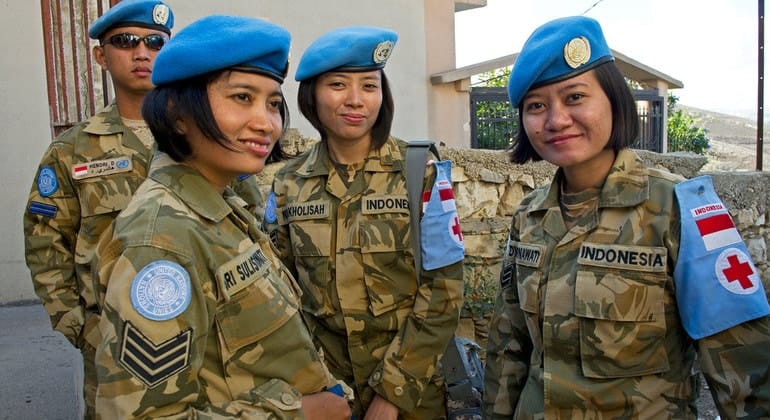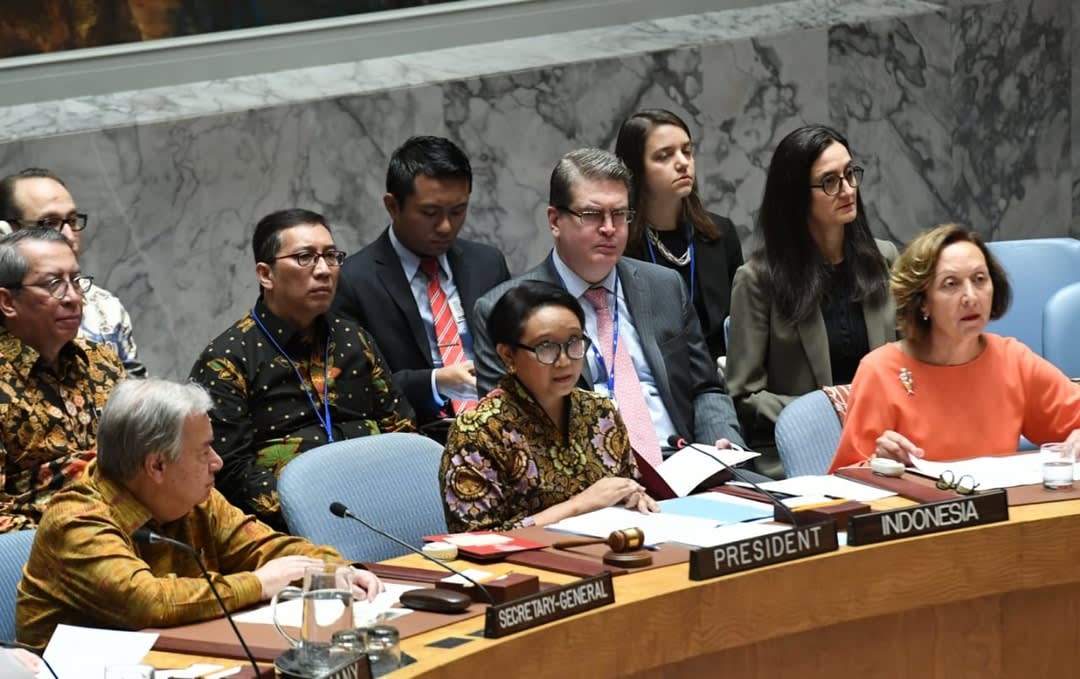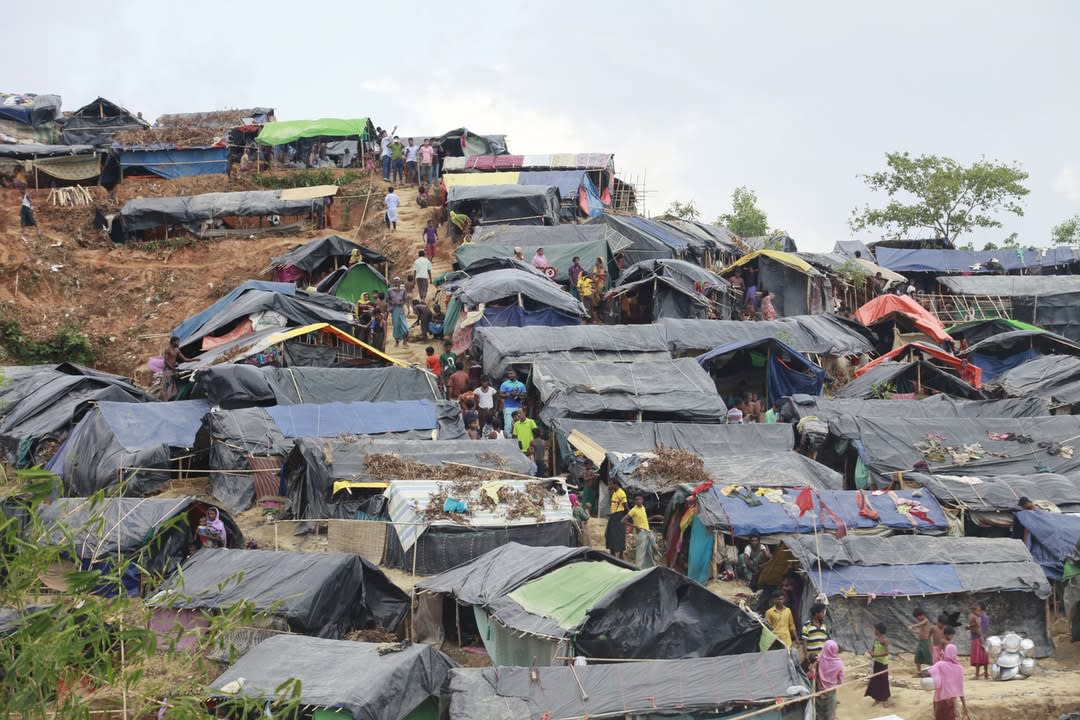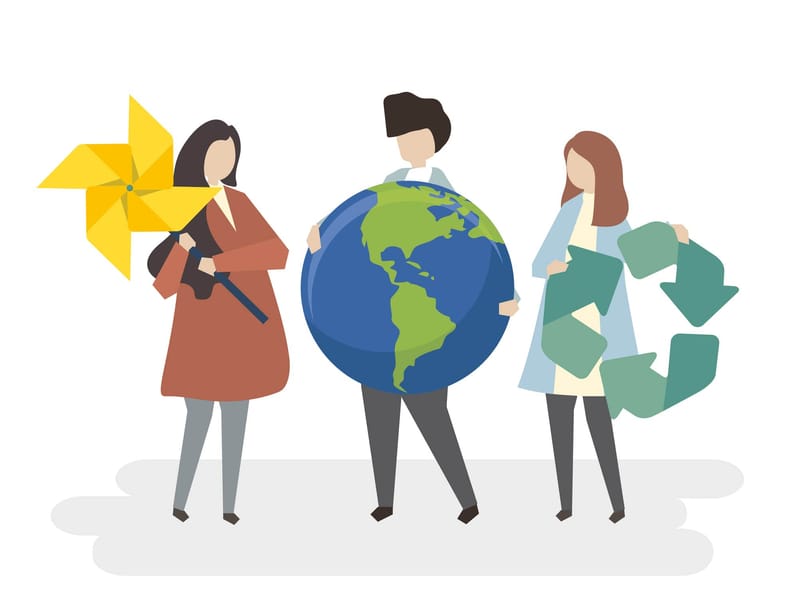
Recently, Indonesian diplomacy in the United Nations Security Council (UNSC) achieved a milestone, and reflected the nation’s increasing contribution to peacekeeping on the global stage.
As Indonesia enters the final stretch of its two-year term as a UNSC non-permanent member, one in which it's held two, month-long presidencies of the body (May 2019 and August 2020), its advocacy for women's peace and security received an overwhelming endorsement in late August when its resolution to promote the role of women in peacekeeping was adopted by all members of the council.
In a statement, Foreign Minister Retno Marsudi said: “Resolution 2538 is the first resolution adopted in the history of Indonesian diplomacy in the UN Security Council. It reflects Indonesia’s contribution to promoting the role of women as agents of peace, especially under the UN peacekeeping mission.”

The resolution seeks to increase the number of women in national militaries and police and the gender sensitivity of UN peacekeeping training. It aims to achieve a better gender balance, which can contribute to “greater credibility of the missions among the population, more effective community engagement, and enhanced protection responses”.
Read more: Indonesia’s UN Security Council drive for inclusive peace and security
But what are the implications of Indonesia’s new-found global leadership on women, peace and security for its domestic politics, its bilateral and multilateral relations in ASEAN+, and its leadership in the broader Indo-Pacific region?
Domestic politics and gendered insecurity
Domestically, Indonesia adopted the Women, Peace and Security (WPS) agenda in 2014 when, by presidential decree, the government launched the "National Action Plan (NAP) for the Protection and Empowerment of Women and Children during Social Conflicts in 2014-2019".
The National Action Plan taskforce, supported by civic organisations, piloted local plans in several provinces, but implementation has been plagued by ineffective coordination, budget shortfalls and gender biases as a result of ingrained patriarchal, social and political structures.
To address this, government ministries and women’s grassroots organisations are working on a second-generation NAP for the next five years. The consultation, which is being conducted remotely because of COVID-19, is considering women’s roles in suicide bombings, as well as in the prevention of violence, reflecting a shift in the gender norms of terrorism and counter-terrorism.
The impact of conflicts on women in Papua and West Papua provinces has also been discussed. Indonesian academics and civic organisations have criticised the implementation of special autonomy law and called for its review, and the tendency to prioritise a state security response. More support for the inclusion of women’s marginalised voices to mitigate the impacts of the violence is needed.
Concurrently, civic leaders, female parliamentarians and government representatives are working together to speed up the sexual violence eradication bill. If approved, the law would mean that Indonesia is endorsing the protection of women’s human rights and prevention of violence, consistent with the pillars of WPS and Indonesia’s leadership in the UNSC.
ASEAN and Indonesia’s regional leadership
Within the ASEAN context, Indonesia’s UNSC membership supports its efforts to promote the regional implementation of WPS. In their Joint Statement On Promoting Women, Peace And Security in ASEAN in 2017, ASEAN member states pledged to “promote gender equality and reduce social inequalities between men and women in our societies…”.
However, until now, Indonesia, the Philippines, and more recently Thailand, are the only ASEAN members to have adopted national plans on WPS. This begs the question of whether Indonesia’s keen promotion of WPS at an international level will inspire other ASEAN countries to address issues of gender and (in)security.
Towards that end, in May 2019, during its first presidency of the UN Security Council, Indonesia organised regional training on "women, peace and security" for 60 diplomats from ASEAN countries, aimed at building their capacity to analyse and sustain post-conflict peace.
A major impediment to Indonesia’s championing of a regional WPS agenda is ASEAN’s principle of “non-intervention”.
Read more: Listening to adolescent girls in times of ongoing crisis
This principle stipulates that member states should not interfere in the domestic affairs of other members. So, while Indonesia has, for instance, actively supported women in the Afghan peace process, it seems reluctant to broach issues of conflict-related sexual violence and human rights violations in Myanmar. Although Indonesia continues to assist Rohingya refugees, its efforts have yet to ease the humanitarian crisis. These examples reveal the salience of the “non-intervention” principle, and the constraints on Indonesia’s WPS leadership in the ASEAN region.

What about Australia-Indonesia bilateral relations?
Indonesia’s leadership on WPS bodes well for strengthened relations with Australia. Both countries have been champions of women’s roles in peacekeeping and peace-building on the UN Security Council and in the Indo-Pacific, with the aim of enhancing regional security and effectively responding to armed conflict, violent extremism, humanitarian disasters and pandemics such as COVID-19.
Like foreign minister Marsudi, defence minister Linda Reynolds has advocated for women’s empowerment and gender perspectives in the planning and conduct of Australian Defence Force operations. She's said that Australia can be a world leader on women, peace and security.
This year, Indonesia and Australia are both poised to launch their second national actions plans for women, peace and security. It's an opportune time, therefore, to consider how Indonesia and Australia can boost collaboration to further support women's meaningful participation in peace and security, and to upscale the capacity among military and police officers, diplomats and development advisors to design and deliver gender-inclusive and gender-responsive actions.





